22 jan 2016
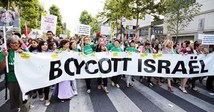
Members of BDS Movement disrupted Thursday evening a college lecture by Israel’s former Shin Bet security service head Ami Ayalon at London University.
Yediot Ahronot Hebrew newspaper said that pro-Palestinian activists smashed windows and set off fire alarms, calling for suing Ayalon for committing war crimes.
Ami Ayalon, former head of the Israeli Security Service, and one of the leaders of the Labor party, has earlier said that he does not object to negotiating with Hamas Movement if it becomes part of the Palestinian Authority, saying that he “killed Arabs more than Hamas fighters killed Jews” during his service.
Along the same line, British doctors protested at the World Medical Association calling for expelling Israel from the association.
Yediot Ahronot Hebrew newspaper said that pro-Palestinian activists smashed windows and set off fire alarms, calling for suing Ayalon for committing war crimes.
Ami Ayalon, former head of the Israeli Security Service, and one of the leaders of the Labor party, has earlier said that he does not object to negotiating with Hamas Movement if it becomes part of the Palestinian Authority, saying that he “killed Arabs more than Hamas fighters killed Jews” during his service.
Along the same line, British doctors protested at the World Medical Association calling for expelling Israel from the association.

A medic looks at blood stain of a Palestinian man who was killed by Israeli undercover forces during a raid at Al-Ahly hospital in the West Bank city of al-Khalil (Hebron) on November 12, 2015.
British doctors have called for the removal of Israel from the World Medical Association (WMA) over claims of “medical torture” on Palestinians seeking treatment.
Some 71 UK doctors have started to pressure the WMA to revoke the membership of the Israel Medical Association, over claims that “our doctors perform medical torture on Palestinian patients,” said Ze'ev Feldman, the representative of the Israeli doctors, during a Knesset meeting held on the subject of boycotts against Israeli academic institutions, on Wednesday.
According to Press TV/Al Ray, if the British physicians succeed, the Tel Aviv regime will be banned from taking part in international medical conferences and publishing in journals.
The move follows similar measures launched by scholars around the world over the past few months. In December, over 200 South African scholars released a statement announcing their support of an academic boycott of Israel.
In November, the American Anthropological Association, the largest professional organization of anthropologists in the world, approved a resolution to boycott Israeli academic institutions.
Moreover, the boycott, divestment and sanctions movement against Israel, known as BDS, is gaining momentum in US college campuses and churches as well as in many places in Europe. The BDS movement seeks to end the Israeli occupation and colonization of Palestinian lands.
British doctors have called for the removal of Israel from the World Medical Association (WMA) over claims of “medical torture” on Palestinians seeking treatment.
Some 71 UK doctors have started to pressure the WMA to revoke the membership of the Israel Medical Association, over claims that “our doctors perform medical torture on Palestinian patients,” said Ze'ev Feldman, the representative of the Israeli doctors, during a Knesset meeting held on the subject of boycotts against Israeli academic institutions, on Wednesday.
According to Press TV/Al Ray, if the British physicians succeed, the Tel Aviv regime will be banned from taking part in international medical conferences and publishing in journals.
The move follows similar measures launched by scholars around the world over the past few months. In December, over 200 South African scholars released a statement announcing their support of an academic boycott of Israel.
In November, the American Anthropological Association, the largest professional organization of anthropologists in the world, approved a resolution to boycott Israeli academic institutions.
Moreover, the boycott, divestment and sanctions movement against Israel, known as BDS, is gaining momentum in US college campuses and churches as well as in many places in Europe. The BDS movement seeks to end the Israeli occupation and colonization of Palestinian lands.
21 jan 2016
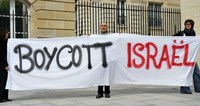
Mercator, Slovenia's largest supermarket chain, has removed Israeli products from its shelves – including pomelos, dates and avocados, following pressure from the BDS movement, Ynetnews newspaper reported Wednesday.
The Slovenian ambassador to Israel was this week summoned for a discussion at the Foreign Ministry in Occupied Jerusalem, the same source added.
According to the newspaper, senior Israeli ministry officials explained the seriousness with which the Israeli occupation views the affair.
Israel's ambassador to Slovenia, Shmuel Meirom, is expected to arrive in the country soon in order to raise the issue with Slovenia's Foreign Ministry, as well as with Mercator's management.
In 2014, the chain attempted to boycott Israeli "JAFFA"-branded grapefruits, again following pressure from BDS activists.
The move comes a couple of days after the European Union Foreign Ministers pushed for boycotting Israeli products manufactured in illegal settlements, a move dubbed by observers a barefaced condemnation of Israel’s illegitimate settlement policies in the occupied Palestinian territories.
The Slovenian ambassador to Israel was this week summoned for a discussion at the Foreign Ministry in Occupied Jerusalem, the same source added.
According to the newspaper, senior Israeli ministry officials explained the seriousness with which the Israeli occupation views the affair.
Israel's ambassador to Slovenia, Shmuel Meirom, is expected to arrive in the country soon in order to raise the issue with Slovenia's Foreign Ministry, as well as with Mercator's management.
In 2014, the chain attempted to boycott Israeli "JAFFA"-branded grapefruits, again following pressure from BDS activists.
The move comes a couple of days after the European Union Foreign Ministers pushed for boycotting Israeli products manufactured in illegal settlements, a move dubbed by observers a barefaced condemnation of Israel’s illegitimate settlement policies in the occupied Palestinian territories.
19 jan 2016

The Hamas Movement has welcomed the European Union (EU) foreign affairs council's decision to freeze its agreements with Israel in the Palestinian areas occupied in 1967 and described it as an important step in the right direction.
In press remarks to the Palestinian Information Center (PIC) on Tuesday, senior Hamas official Ismail Radwan considered; however, such a European step "insufficient", and called for necessarily imposing economic sanctions on Israel and holding it accountable for committing crimes against humanity.
Radwan also urged the EU to end all kinds of support for Israel in response to its violations against the Palestinian people.
In press remarks to the Palestinian Information Center (PIC) on Tuesday, senior Hamas official Ismail Radwan considered; however, such a European step "insufficient", and called for necessarily imposing economic sanctions on Israel and holding it accountable for committing crimes against humanity.
Radwan also urged the EU to end all kinds of support for Israel in response to its violations against the Palestinian people.
18 jan 2016
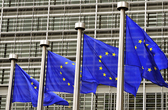
The EU reinforces its position that products made in Israeli settlements must be clearly labelled in Europe, despite growing tensions with Israel over the issue, but stresses that the bloc opposes any boycott of the Jewish state.
The European Union reinforced on Monday its position that products made in Israeli settlements must be clearly labelled in Europe, despite growing tensions with Israel over the issue, but stressed that the bloc opposes any boycott of the Jewish state.
EU foreign ministers said the guidelines on labels for farm and other products, which were unveiled in November and branded discriminatory by Israel, were there to explain EU law and did not mark a change in the European Union's long-held opposition to Israeli settlements.
"The EU and its member States are committed to ensure continued, full and effective implementation of existing EU legislation and bilateral arrangements applicable to settlements products," ministers said in a statement.
Ministers reiterated the EU's position that the lands Israel has held since the 1967 Middle East war - including the West Bank, East Jerusalem and the Golan Heights - are not part of the internationally recognised borders of Israel.
As such, goods from there cannot be labelled "Made in Israel" and should be labelled as coming from settlements, which the EU considers illegal under international law.
Following the publication of the guidelines, Israel has suspended contact with EU bodies involved in peace efforts with Palestinians, though the government says bilateral ties with nearly all EU countries are strong.
That move appears directed at the European Union's desire for a more active role in seeking peace between Israel and the Palestinians, under EU foreign policy chief Federica Mogherini.
It also comes at a time of high tension between Israel and Palestinians.
Israel's foreign ministry said in response to the statement on Monday that the EU continues to hold Israel to double standard, while ignoring the Palestinian role in stalled peace talks and about 200 other conflicts over territory in the world.
The Palestine Liberation Organization welcomed the EU statement and called for greater European involvement.
EU foreign ministers blamed both sides during the last four months of violence, condemning the killings on all sides and urging Israel to address the deeper causes.
The European Union reinforced on Monday its position that products made in Israeli settlements must be clearly labelled in Europe, despite growing tensions with Israel over the issue, but stressed that the bloc opposes any boycott of the Jewish state.
EU foreign ministers said the guidelines on labels for farm and other products, which were unveiled in November and branded discriminatory by Israel, were there to explain EU law and did not mark a change in the European Union's long-held opposition to Israeli settlements.
"The EU and its member States are committed to ensure continued, full and effective implementation of existing EU legislation and bilateral arrangements applicable to settlements products," ministers said in a statement.
Ministers reiterated the EU's position that the lands Israel has held since the 1967 Middle East war - including the West Bank, East Jerusalem and the Golan Heights - are not part of the internationally recognised borders of Israel.
As such, goods from there cannot be labelled "Made in Israel" and should be labelled as coming from settlements, which the EU considers illegal under international law.
Following the publication of the guidelines, Israel has suspended contact with EU bodies involved in peace efforts with Palestinians, though the government says bilateral ties with nearly all EU countries are strong.
That move appears directed at the European Union's desire for a more active role in seeking peace between Israel and the Palestinians, under EU foreign policy chief Federica Mogherini.
It also comes at a time of high tension between Israel and Palestinians.
Israel's foreign ministry said in response to the statement on Monday that the EU continues to hold Israel to double standard, while ignoring the Palestinian role in stalled peace talks and about 200 other conflicts over territory in the world.
The Palestine Liberation Organization welcomed the EU statement and called for greater European involvement.
EU foreign ministers blamed both sides during the last four months of violence, condemning the killings on all sides and urging Israel to address the deeper causes.
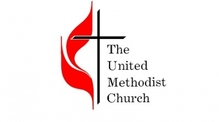
Israeli Foreign Ministry officials have expressed surprise at the United Methodist Church’s decision to divest from five Israeli banks on the grounds of human rights concerns.
Bank Hapoalim, Bank Leumi, First International Bank of Israel, Israel Discount Bank and Bank Mizrahi-Tefahot are among 39 companies blacklisted by the UMC pension fund for failing to meet the guidelines of a human rights investment policy.
An Israeli construction company, Shikun & Binui, was also excluded for its involvement in settlement building.
According to Haaretz newspaper, the US decision is being taken seriously and is causing concern within the Foreign Ministry. It is being considered one of the most dangerous decisions made by a US institution to date regarding the imposition of sanctions on Israeli companies due to their activities in the West Bank.
The newspaper quoted, according to Middle East Monitor/Al Ray, officials in the Israeli Foreign Ministry as saying that they are still studying the decision and its consequences. They also said that they will try to make contact with the head of the church in an attempt to push for a withdrawal of the decision or, at least, reduce its impact.
The United Methodist Church is one of the largest Protestant denominations in the United States, with an estimated seven million members.
Bank Hapoalim, Bank Leumi, First International Bank of Israel, Israel Discount Bank and Bank Mizrahi-Tefahot are among 39 companies blacklisted by the UMC pension fund for failing to meet the guidelines of a human rights investment policy.
An Israeli construction company, Shikun & Binui, was also excluded for its involvement in settlement building.
According to Haaretz newspaper, the US decision is being taken seriously and is causing concern within the Foreign Ministry. It is being considered one of the most dangerous decisions made by a US institution to date regarding the imposition of sanctions on Israeli companies due to their activities in the West Bank.
The newspaper quoted, according to Middle East Monitor/Al Ray, officials in the Israeli Foreign Ministry as saying that they are still studying the decision and its consequences. They also said that they will try to make contact with the head of the church in an attempt to push for a withdrawal of the decision or, at least, reduce its impact.
The United Methodist Church is one of the largest Protestant denominations in the United States, with an estimated seven million members.
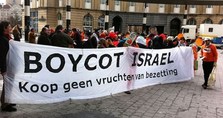
The Hamas Movement has urged the European Union (EU) states to adopt by unanimous vote a draft resolution against Israel's settlement expansion policy.
Member of Hamas's political bureau Ezzat al-Resheq stated in press remarks to Quds Press on Monday that the EU's intention to reemphasize its position on the labeling of settlement-made products would be a step in the right direction, albeit insufficient to encounter Israel's ongoing crimes against the Palestinian people and their land.
"The EU states have to prove their alignment with the values of justice, freedom and humanity, and stand by the Palestinian people who are exposed to the most heinous crimes every day," Resheq underscored.
"We expect that the EU states will not bow to any political pressures, extortion, or desperate attempts by the occupation leaders in order to discourage some of them from voting in favor of the resolution," the Hamas official added.
Resheq expressed his Movement's appreciation of such European positions which support the Palestinian people's right to live in freedom and dignity on their own land.
The EU foreign affairs council is slated to meet on Monday to emphasize the distinction Europe makes between Israel and its settlements.
The EU draft resolution states that "the EU will continue to unequivocally and explicitly make the distinction between Israel and all territories occupied by Israel in 1967. EU agreements with the State of Israel are only applicable to the state of Israel [and not to the settlements]. The EU and its member states are united in their commitment to ensure full implementation of existing EU legislation and agreements applicable to settlement products."
Member of Hamas's political bureau Ezzat al-Resheq stated in press remarks to Quds Press on Monday that the EU's intention to reemphasize its position on the labeling of settlement-made products would be a step in the right direction, albeit insufficient to encounter Israel's ongoing crimes against the Palestinian people and their land.
"The EU states have to prove their alignment with the values of justice, freedom and humanity, and stand by the Palestinian people who are exposed to the most heinous crimes every day," Resheq underscored.
"We expect that the EU states will not bow to any political pressures, extortion, or desperate attempts by the occupation leaders in order to discourage some of them from voting in favor of the resolution," the Hamas official added.
Resheq expressed his Movement's appreciation of such European positions which support the Palestinian people's right to live in freedom and dignity on their own land.
The EU foreign affairs council is slated to meet on Monday to emphasize the distinction Europe makes between Israel and its settlements.
The EU draft resolution states that "the EU will continue to unequivocally and explicitly make the distinction between Israel and all territories occupied by Israel in 1967. EU agreements with the State of Israel are only applicable to the state of Israel [and not to the settlements]. The EU and its member states are united in their commitment to ensure full implementation of existing EU legislation and agreements applicable to settlement products."
16 jan 2016
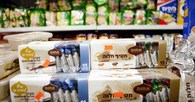
Israeli political circles have voiced their fears recently over European intents to take economic measures against Israel in the next monthly meeting of the council of foreign ministers of the European Union (EU).
Haaretz newspaper revealed last night that Israeli diplomats at home and abroad have started to make efforts to soften the wording of the resolution that will be taken against Israel during the meeting.
Haaretz quoted European and Israeli diplomats as saying that a strong decision would be taken against Israel in the EU foreign ministers' meeting next Monday, regarding the labeling of Israeli products made in settlements built on the 1967 occupied lands.
Haaretz newspaper revealed last night that Israeli diplomats at home and abroad have started to make efforts to soften the wording of the resolution that will be taken against Israel during the meeting.
Haaretz quoted European and Israeli diplomats as saying that a strong decision would be taken against Israel in the EU foreign ministers' meeting next Monday, regarding the labeling of Israeli products made in settlements built on the 1967 occupied lands.
13 jan 2016

United Methodist Kairos Response is pleased to announce that the $20-billion Pension and Health Benefits Fund of the United Methodist Church has declared the five largest Israeli banks off limits for investment and has divested from the two that it held in its portfolios.
This is the first time a major church pension fund has acted to preclude investment in Israeli banks that sustain Israel’s illegal occupation of Palestinian land.
The information has been posted on the Pension Fund’s website under Evaluating companies in our investment funds that pose excessive human rights risks. The banks are Bank Hapoalim, Bank Leumi, First International Bank of Israel, Israel Discount Bank, and Mizrahi Tefahot Bank. These banks are deeply involved in financing illegal settlements in the occupied Palestinian territories.
Bank Hapoalim and Bank Leumi were removed from the portfolios. The fund manager, known as Wespath, also divested from Shikun & Binui, an Israeli company involved with construction in the illegal settlements beyond Israel’s recognized borders. In addition, Wespath has placed Israel/Palestine on a list of regions where human rights violations occur.
UMKR is pleased to learn of these actions, while noting that Wespath still holds stock in ten companies located inside the illegal settlements and in several others that lend important support to Israel’s occupation. A list of those companies is available on the UMKR website.
According to UMKR Co-chair Rev. Michael Yoshii, “We commend the pension fund for taking this significant step in disassociating from the illegal occupation of Palestinian land. But as United Methodist policy opposes the occupation, this is only a first step towards ending our financial complicity in the ongoing oppression of the Palestinian people.”
Rev. John Wagner, a member of the UMKR Divestment Committee, added, “Since the church’s policy-making body, the General Conference, has called on all nations to boycott products produced in the illegal settlements, we urge our fund managers to maintain consistency and divest from all companies that profit from these same settlements.”
UMKR has submitted four proposals to the next General Conference, which will meet May 10-20 in Portland, Oregon. Three would require divesting from companies involved with the occupation and one would establish a screen to preclude investments in companies doing business in illegal settlements anywhere in the world.
United Methodist Kairos Response is a global grassroots group within the United Methodist Church seeking to respond to the urgent call of Palestinian Christians for actions that can end the Israeli occupation of their land. For more information, visit www.kairosresponse.org.
US church boycotts five Israeli banks, one company
The pension fund for the United Methodist Church in the US has blocked five Israeli banks from its investment portfolio in what it describes as a broad review meant to discard of enterprises that profit from abuse of human rights.
According to New York Times newspaper on Wednesday, the Israeli banks on the Methodist Church’s list are Bank Hapoalim, Bank Leumi, First International Bank of Israel, Israel Discount Bank and Bank Mizrahi-Tefahot.
The Israeli banks were among 39 companies from several countries that have been excluded from the pension fund's portfolio for not meeting its human rights investment policy guidelines.
The list also includes an Israeli construction company, Shikun and Binui, which the fund says is heavily involved in settlement building.
The Methodist Church has about 13 million members worldwide and is the largest mainline Protestant group in the US.
This is the first time a major church pension fund has acted to preclude investment in Israeli banks that sustain Israel’s illegal occupation of Palestinian land.
The information has been posted on the Pension Fund’s website under Evaluating companies in our investment funds that pose excessive human rights risks. The banks are Bank Hapoalim, Bank Leumi, First International Bank of Israel, Israel Discount Bank, and Mizrahi Tefahot Bank. These banks are deeply involved in financing illegal settlements in the occupied Palestinian territories.
Bank Hapoalim and Bank Leumi were removed from the portfolios. The fund manager, known as Wespath, also divested from Shikun & Binui, an Israeli company involved with construction in the illegal settlements beyond Israel’s recognized borders. In addition, Wespath has placed Israel/Palestine on a list of regions where human rights violations occur.
UMKR is pleased to learn of these actions, while noting that Wespath still holds stock in ten companies located inside the illegal settlements and in several others that lend important support to Israel’s occupation. A list of those companies is available on the UMKR website.
According to UMKR Co-chair Rev. Michael Yoshii, “We commend the pension fund for taking this significant step in disassociating from the illegal occupation of Palestinian land. But as United Methodist policy opposes the occupation, this is only a first step towards ending our financial complicity in the ongoing oppression of the Palestinian people.”
Rev. John Wagner, a member of the UMKR Divestment Committee, added, “Since the church’s policy-making body, the General Conference, has called on all nations to boycott products produced in the illegal settlements, we urge our fund managers to maintain consistency and divest from all companies that profit from these same settlements.”
UMKR has submitted four proposals to the next General Conference, which will meet May 10-20 in Portland, Oregon. Three would require divesting from companies involved with the occupation and one would establish a screen to preclude investments in companies doing business in illegal settlements anywhere in the world.
United Methodist Kairos Response is a global grassroots group within the United Methodist Church seeking to respond to the urgent call of Palestinian Christians for actions that can end the Israeli occupation of their land. For more information, visit www.kairosresponse.org.
US church boycotts five Israeli banks, one company
The pension fund for the United Methodist Church in the US has blocked five Israeli banks from its investment portfolio in what it describes as a broad review meant to discard of enterprises that profit from abuse of human rights.
According to New York Times newspaper on Wednesday, the Israeli banks on the Methodist Church’s list are Bank Hapoalim, Bank Leumi, First International Bank of Israel, Israel Discount Bank and Bank Mizrahi-Tefahot.
The Israeli banks were among 39 companies from several countries that have been excluded from the pension fund's portfolio for not meeting its human rights investment policy guidelines.
The list also includes an Israeli construction company, Shikun and Binui, which the fund says is heavily involved in settlement building.
The Methodist Church has about 13 million members worldwide and is the largest mainline Protestant group in the US.

Spain’s United Left Party, with the backing of the Spanish Socialist Workers’ Party, adopted the global campaign for Boycott, Divestment and Sanctions (BDS) against the Israeli occupation.
Members of the Castrillon City Council, in the Spanish province of Asturias, voted in favor of the move.
Having reviewed the reasons for adopting the BDS campaign, the general coordinator of the Unified Left, Jose Luis Garrido, called on other Spanish cities to take the same action and to boycott Israel at all levels until it withdraws from the occupied territories and respects international law and the rights of the Palestinian people to independence and freedom.
Addressing the members of the local municipal council, Garrido further spoke out against Israel’s breach of the UN resolutions, along with its policies of illegal settlement expansion and construction of apartheid walls.
The Spanish activist raised alarm bells over the tragic state of affairs endured by Palestinian refugees and those living in the blockaded Gaza Strip.
This move comes in light of similar decisions to boycott Israel which were made by other Spanish institutions, the most recent being the University of Barcelona.
Over recent years, several European institutions announced their decision to boycott Israel due to its crimes and violence against Palestinian civilians including children.
Members of the Castrillon City Council, in the Spanish province of Asturias, voted in favor of the move.
Having reviewed the reasons for adopting the BDS campaign, the general coordinator of the Unified Left, Jose Luis Garrido, called on other Spanish cities to take the same action and to boycott Israel at all levels until it withdraws from the occupied territories and respects international law and the rights of the Palestinian people to independence and freedom.
Addressing the members of the local municipal council, Garrido further spoke out against Israel’s breach of the UN resolutions, along with its policies of illegal settlement expansion and construction of apartheid walls.
The Spanish activist raised alarm bells over the tragic state of affairs endured by Palestinian refugees and those living in the blockaded Gaza Strip.
This move comes in light of similar decisions to boycott Israel which were made by other Spanish institutions, the most recent being the University of Barcelona.
Over recent years, several European institutions announced their decision to boycott Israel due to its crimes and violence against Palestinian civilians including children.
12 jan 2016
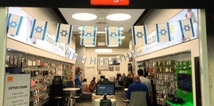
French telecommunications giant, Orange, aims to end its ties with Israel’s second-largest mobile company, Partner Communications.
The move, which will be enforced in February, according to the PNN, brings an end to a licensing agreement that the BDS movement claimed was a direct result of their campaigning.
Additionally, according to a Newsweek magazine report, the BDS movement alleges that Partner provided telecoms and fee waivers to Israeli soldiers during 2014’s 50-day Gaza conflict.
Partner owns the license to use Orange’s brand name for its products in Israel.
The company provides its services to illegal Israeli settlements in occupied east Jerusalem and in the occupied West Bank.
As for the European Union, Israel’s occupation of these areas is not recognized as well as their settlements, which are illegal under international law.
Members of the BDS movement’s leadership say the deal’s conclusion was the result of a six-year grassroots campaign by unions and pressure groups in France, Egypt, Tunisia and Morocco.
One of the key turning points in the campaign, BDS says, was when the movement’s Egyptian arm called for a boycott against Orange’s subsidiary in the country, Mobinil, which had 33.7 million subscribers as of December 2014.
“This news is a significant success for the BDS movement and shows that international companies and investors are waking up to the fact that being linked to Israel’s regime of colonization, occupation and apartheid is bad for business,” said Guman Mussa, the Arab World campaigns officer for the coordinating body of the movement, the Palestinian BDS National Committee.
In a statement, Orange has denied that it was acting in response to the boycott and has said it was ending the relationship with Partner purely for commercial reasons.
According to Haaretz, Partner stands to receive $54.3 million in compensation for agreeing to release Orange from the brand agreement.
The company has marketed its products in Israel under the Orange name since it was founded in 1998 and must now embark on a rebranding process.
In France, the trade unions Solidaires and the Orange Sud PTT Federation, which represents Orange workers, have welcomed the end of Orange’s relationship with Partner.
ShowImageFIDH, The International Federation for Human Rights, which co-authored the report into Orange’s complicity in Israel’s crimes, called the end of Orange’s deal with Partner “a victory for all defenders of international law and human rights.”
However, Orange said in a statement that it would continue to invest in Israel through other avenues:
“Orange acknowledges Partner’s decision to terminate the brand license agreement and re-brand its activities. As previously announced, Orange will be able to use its brand for its continuing investments in technological innovation in Israel.”
Two other major foreign companyes withdraw their business in Israel: the French multinational Veolia pulled out of its Israel operations which included operating a tram service to illegal settlements and Ireland’s largest multinational corporation, CRH, confirmed that the global cement giant has divested from its 25% stake in the Israeli cement market.
A leaked Israeli government report estimates that BDS could cost Israel’s economy $1.4bn a year, while a study by the Rand Corporation states that BDS could cost Israel between 1 and 2 per cent annually over 10 years.
Israeli officials view the growing BDS movement as a major “strategic threat” to its apartheid settler colonial regime – so much so that it has created a ministry to fight the campaign, and poured millions of dollars into its propaganda and sabotage efforts.
The move, which will be enforced in February, according to the PNN, brings an end to a licensing agreement that the BDS movement claimed was a direct result of their campaigning.
Additionally, according to a Newsweek magazine report, the BDS movement alleges that Partner provided telecoms and fee waivers to Israeli soldiers during 2014’s 50-day Gaza conflict.
Partner owns the license to use Orange’s brand name for its products in Israel.
The company provides its services to illegal Israeli settlements in occupied east Jerusalem and in the occupied West Bank.
As for the European Union, Israel’s occupation of these areas is not recognized as well as their settlements, which are illegal under international law.
Members of the BDS movement’s leadership say the deal’s conclusion was the result of a six-year grassroots campaign by unions and pressure groups in France, Egypt, Tunisia and Morocco.
One of the key turning points in the campaign, BDS says, was when the movement’s Egyptian arm called for a boycott against Orange’s subsidiary in the country, Mobinil, which had 33.7 million subscribers as of December 2014.
“This news is a significant success for the BDS movement and shows that international companies and investors are waking up to the fact that being linked to Israel’s regime of colonization, occupation and apartheid is bad for business,” said Guman Mussa, the Arab World campaigns officer for the coordinating body of the movement, the Palestinian BDS National Committee.
In a statement, Orange has denied that it was acting in response to the boycott and has said it was ending the relationship with Partner purely for commercial reasons.
According to Haaretz, Partner stands to receive $54.3 million in compensation for agreeing to release Orange from the brand agreement.
The company has marketed its products in Israel under the Orange name since it was founded in 1998 and must now embark on a rebranding process.
In France, the trade unions Solidaires and the Orange Sud PTT Federation, which represents Orange workers, have welcomed the end of Orange’s relationship with Partner.
ShowImageFIDH, The International Federation for Human Rights, which co-authored the report into Orange’s complicity in Israel’s crimes, called the end of Orange’s deal with Partner “a victory for all defenders of international law and human rights.”
However, Orange said in a statement that it would continue to invest in Israel through other avenues:
“Orange acknowledges Partner’s decision to terminate the brand license agreement and re-brand its activities. As previously announced, Orange will be able to use its brand for its continuing investments in technological innovation in Israel.”
Two other major foreign companyes withdraw their business in Israel: the French multinational Veolia pulled out of its Israel operations which included operating a tram service to illegal settlements and Ireland’s largest multinational corporation, CRH, confirmed that the global cement giant has divested from its 25% stake in the Israeli cement market.
A leaked Israeli government report estimates that BDS could cost Israel’s economy $1.4bn a year, while a study by the Rand Corporation states that BDS could cost Israel between 1 and 2 per cent annually over 10 years.
Israeli officials view the growing BDS movement as a major “strategic threat” to its apartheid settler colonial regime – so much so that it has created a ministry to fight the campaign, and poured millions of dollars into its propaganda and sabotage efforts.
10 jan 2016
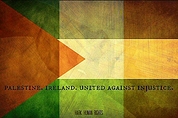
A report released today [PDF] by Ireland’s largest multinational corporation, CRH, confirmed that the global cement giant has divested from its 25% stake in the Israeli cement market.
The company has been a focus of a sustained campaign calling for such a divestment from the Ireland-Palestine Solidarity Campaign (IPSC) and other groups for over a decade, due to role its Israeli subsidiary Nesher Cement plays in supplying materials for the building of Israel’s illegal separation wall, checkpoints and settlements.
In the report CRH stated that it had “completed 13 divestments in 2015, the largest of which was the disposal of CRH’s 25% equity stake in its Israeli operation.”
That 25% stake was held in the Mashav group, the holding company for Nesher Cement, the sole producer of cement in Israel. Nesher is involved in the building of the separation wall in the West Bank which annexes Palestinian land to Israel, and has been declared illegal by the International Court of Justice. Nesher’s actions support and sustain the ongoing Israeli military occupation of Palestinian land. Nesher Cement is also used in the construction of illegal colonial settlements in the occupied territories, checkpoints that impede travel and commerce for Palestinians, and more than 700 kilometres of Israeli-only roads in the West Bank (See the Who Profits? website for details of Nesher’s involvement).
“This divestment is just the latest in a number of high profile victories for the global Palestinian-led Boycott, Divestment and Sanctions (BDS) movement. In August last year the French multinational Veolia, which the IPSC also campaigned on, pulled out of its Israel operations which included operating a tram service to illegal settlements. Earlier this month, the communications giant Orange dumped its Israeli affiliate, which had backed the Israeli assault on Gaza in 2014 and ‘adopted’ a military unit. ‘Brand Israel’, it seems, is becoming increasingly toxic and it appears that international companies are eventually learning that it doesn’t pay to do business with the Apartheid state,” Mr. O’Quigley concluded.
The company has been a focus of a sustained campaign calling for such a divestment from the Ireland-Palestine Solidarity Campaign (IPSC) and other groups for over a decade, due to role its Israeli subsidiary Nesher Cement plays in supplying materials for the building of Israel’s illegal separation wall, checkpoints and settlements.
In the report CRH stated that it had “completed 13 divestments in 2015, the largest of which was the disposal of CRH’s 25% equity stake in its Israeli operation.”
That 25% stake was held in the Mashav group, the holding company for Nesher Cement, the sole producer of cement in Israel. Nesher is involved in the building of the separation wall in the West Bank which annexes Palestinian land to Israel, and has been declared illegal by the International Court of Justice. Nesher’s actions support and sustain the ongoing Israeli military occupation of Palestinian land. Nesher Cement is also used in the construction of illegal colonial settlements in the occupied territories, checkpoints that impede travel and commerce for Palestinians, and more than 700 kilometres of Israeli-only roads in the West Bank (See the Who Profits? website for details of Nesher’s involvement).
“This divestment is just the latest in a number of high profile victories for the global Palestinian-led Boycott, Divestment and Sanctions (BDS) movement. In August last year the French multinational Veolia, which the IPSC also campaigned on, pulled out of its Israel operations which included operating a tram service to illegal settlements. Earlier this month, the communications giant Orange dumped its Israeli affiliate, which had backed the Israeli assault on Gaza in 2014 and ‘adopted’ a military unit. ‘Brand Israel’, it seems, is becoming increasingly toxic and it appears that international companies are eventually learning that it doesn’t pay to do business with the Apartheid state,” Mr. O’Quigley concluded.
Page: 2 - 1
